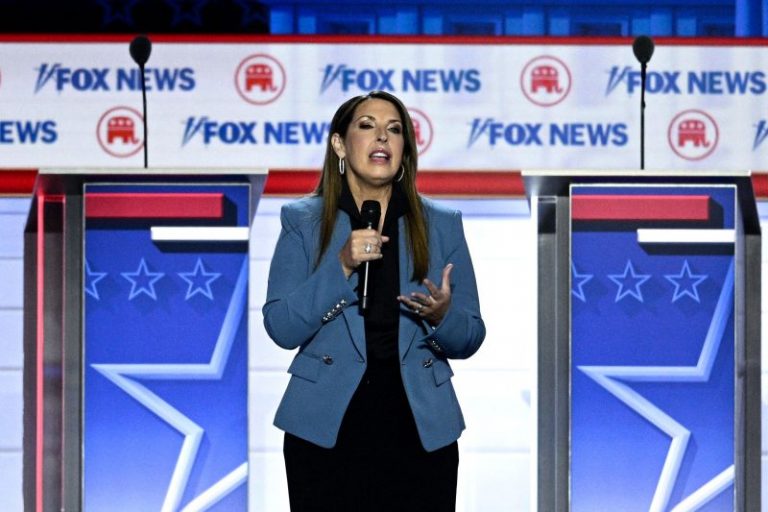Republican National Committee members have chosen Houston to be the host city of the 2028 Republican National Convention, the RNC announced Friday.
The announcement comes earlier than in previous election cycles. Republicans announced that Milwaukee would host their 2024 convention in August 2022.
The RNC changed its rules in early 2022 to start picking the convention site six years out, instead of the traditional two years. The change was made to book venues more easily and lessen the political pressure on the process, according to a Republican involved in the process who spoke on the condition of anonymity to discuss internal deliberations.
RNC Chairwoman Ronna McDaniel said in a statement that “a smart business decision made by the RNC last spring” allows the RNC to “select the next convention city earlier than ever.”
“[W]e are looking forward to seeing Houston in the spotlight come 2028,” she continued. “The entire RNC membership is eager to work with Governor Greg Abbott, Mayor Sylvester Turner, the Houston Host Committee, and Houston First Corporation to follow in Milwaukee’s footsteps by delivering an incredible convention for our Party.”
Abbott, a third-term Republican governor who has been floated as a potential presidential candidate, tweeted Friday that his state is “the heart of the conservative movement.” And Sen. John Cornyn (R-Tex.) said on social media that his home state “continues to be a model for the nation of individual freedom, conservative values, and economic growth, and there’s no better place to experience all the Lone Star State has to offer than the Bayou City.”
Politico was the first to report that Houston had been selected.
Sylvester Turner, Houston’s two-term Democratic mayor, thanked McDaniel and the committee for choosing his city in a joint statement with the RNC.
“We are proud to be chosen as the site for the 2028 Republican National Convention. This keeps us on the global stage, allowing us to showcase our amazing venues and the people who keep our hotels, restaurants, and local businesses operating,” Turner said.
Ira Mitzner, who heads the Houston RNC Bid Committee, pointed to Houston’s diversity and inclusivity as reasons that the city represents “the future of the United States and our aspirations as a country.”
At first glance, the Texas metropolis could appear to be an odd choice for the Republican convention, given that Turner has been a frequent target of state GOP leaders — clashing over lockdowns, guns, policing, homelessness and LGBTQ policies.
Earlier this year, Texas lawmakers orchestrated a takeover of Houston schools, the eighth-largest district in the country. And they’re locked in a legal battle to overhaul how Houston’s elections are run after Republicans sued to overthrow the most recent results.
Republicans often vow to boycott Houston and surrounding Harris County (which also leans Democratic). Many conservative gatherings shifted north in recent years to Dallas, including this year’s Turning Point USA Young Women’s Leadership Summit, last year’s Conservative Political Action Coalition and National Rifle Association conventions. But next year’s NRA convention is scheduled to be in Houston.
While the city is blue, its suburbs and surrounding counties are decidedly red and fast-growing. Houston’s Harris County is the third-largest in the country, home to nearly 5 million people, including conservative oil and gas workers that fill suburbs such as Katy and neighboring Fort Bend County.
The last time the city hosted a Republican National Convention was in 1992, at the Astrodome. The convention that year is often credited with sparking the culture war rhetoric adopted by much of the current Republican Party, thanks to a prime-time speech by Pat Buchanan.
In his speech, Buchanan declared that there was “a religious war going on in this country. It is a cultural war, as critical to the kind of nation we shall be as was the Cold War itself, for this war is for the soul of America.”

